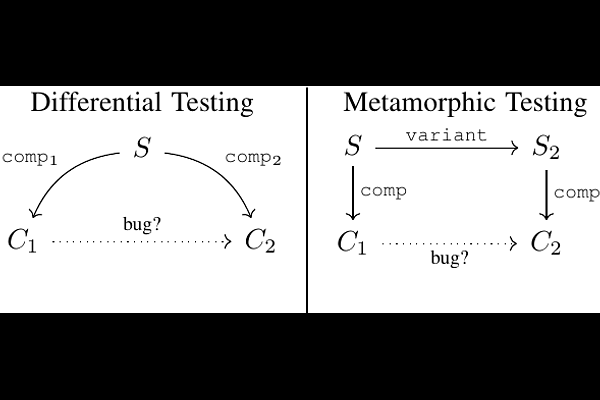Compiler Testing With Relaxed Memory Models

Compiler Testing With Relaxed Memory Models
Luke Geeson, Lee Smith
AbstractIt is critical that compilers are correct! Finding bugs is one aspect of testing the correctness of compilers in wide use today. A compiler is correct if every compiled program behaves as allowed by the semantics of its source code - else there is a bug. Memory consistency models define the semantics of concurrent programs. We focus on how to detect concurrency bugs introduced by compilers, as identified using memory models. We seek a testing technique that automatically covers concurrency bugs up to fixed bounds on program sizes and that scales to find bugs in compiled programs with many lines of code. Otherwise, a testing technique can miss bugs. Unfortunately, the state-of-the-art techniques are yet to satisfy all of these properties. We present the T\'el\'echat compiler testing tool for concurrent programs. T\'el\'echat finds a concurrency bug when the behaviour of a compiled program, as allowed by its architecture memory model, is not a behaviour of the source program under its source model. We make three claims: T\'el\'echat improves the state-of-the-art at finding bugs in code generation for multi-threaded execution, it is the first public description of a compiler testing tool for concurrency that is deployed in industry, and it is the first tool that takes a significant step towards the desired properties. We provide experimental evidence suggesting T\'el\'echat finds bugs missed by other state-of-the-art techniques, case studies indicating that T\'el\'echat satisfies the properties, and reports of our experience deploying T\'el\'echat in industry.